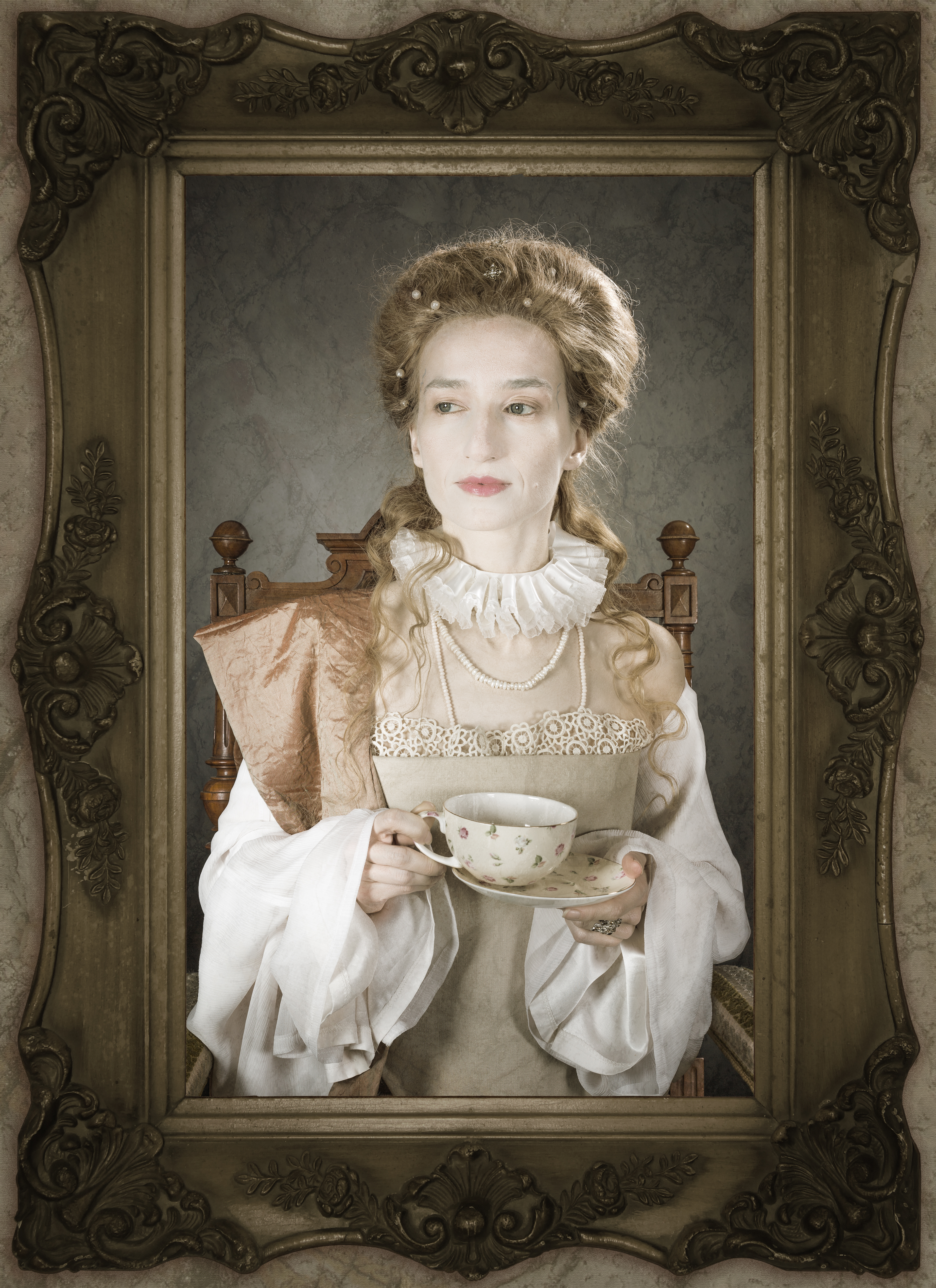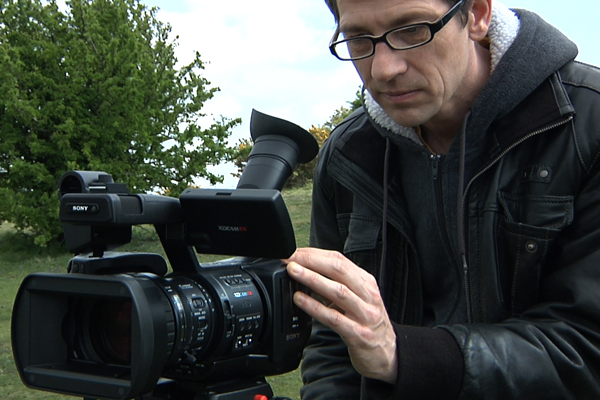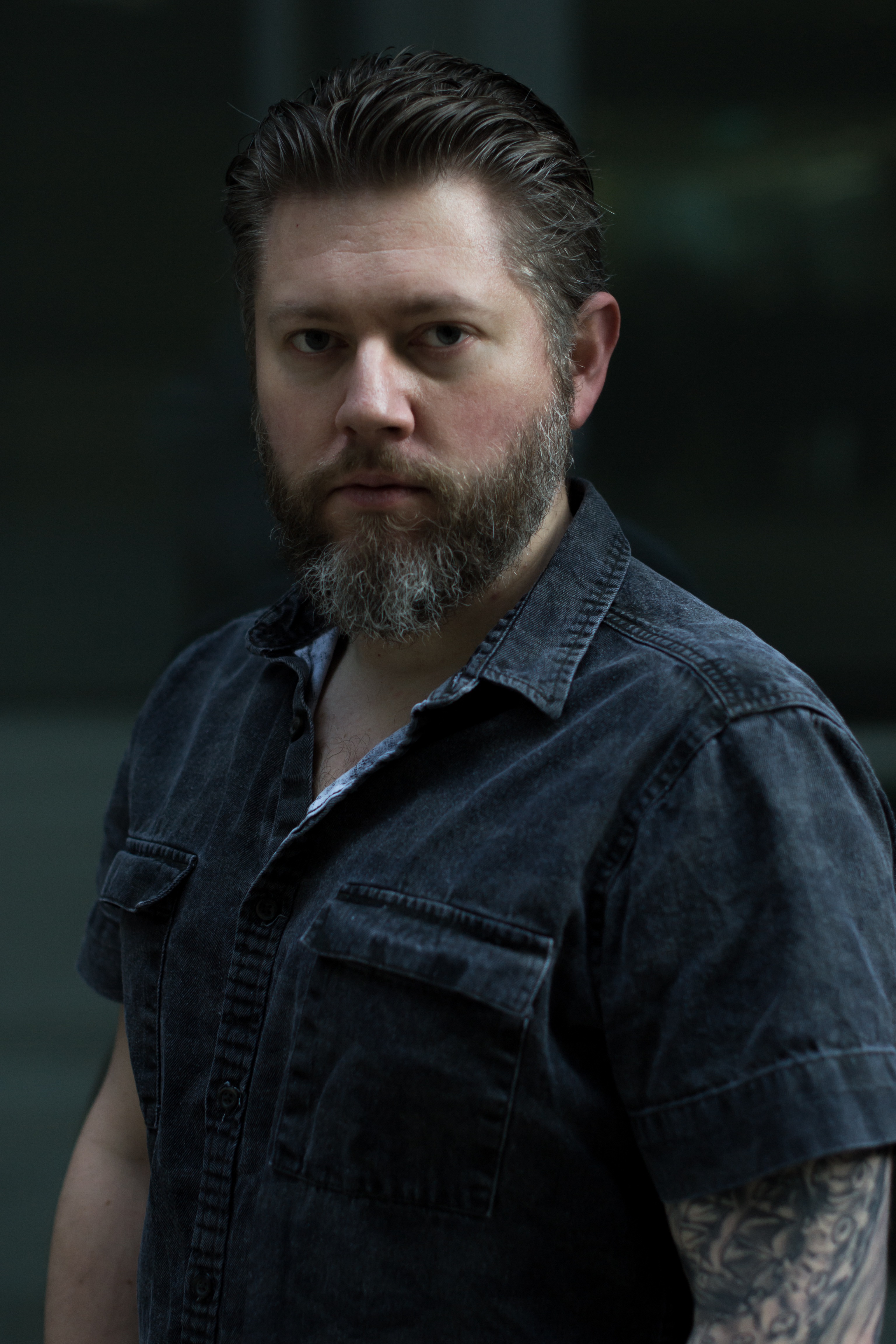ASK & DISCUSS
INDEXWhy does the sound in your film suck?
10 years, 2 months ago - Dan Selakovich
Some years ago I made a short. It is entering its fourth year of sound design. Yep, I said 4 years. Not that every second of those four years has been devoted to sound; the sound designer is an Emmy Award and Canadian Academy winning production sound mixer, sound designer, and composer. Since I have no money, he works on my film in his spare time, which as you can imagine isn't much.
Why am I so patient? Because good sound is worth it. The psychological hold that sound has on an audience can not be underestimated, but it's something that directors of the shorts here on SP, and elsewhere, underestimate consistently. Many don't even bother learning the basics. Often I hear holes in the dialogue tracks. Or mistakes in mixing music or EFX over dialogue (simply because you know the dialogue by heart, you hear it differently than those of us seeing your film for the first time). But in the end, I'm not even talking about those things. I'm talking about subtlety and how we, as an audience, perceive sound. I've sat in mixing stages where we spent an entire afternoon getting the pages of a file to sound just right as the character flipped though them. How those pages sound needed to have a foreshadowing impact on a later scene. And you know what, that afternoon was completely worth it. Those pages made the audience tense, but I'm sure they didn't know why.
The man working on my sound is also doing the music. What a gift. You don't know where the music ends and the sound design of EFX and dialogue begin. They are beautifully integrated into one thing. Layer after layer after layer.
I think we all know by now, that an audience won't accept bad production sound. But now we have to go further. As for me, what I need now is money to get into a proper mixing stage. If you're planning on showing your film in a theatre, mixing it in your bedroom is a terrible idea. Room size affects how sound is heard. You have to mix for the viewing environment. Even in my home, I have not speakers, but monitors, hooked up to my computer and flat screen. My apartment is outfitted with sound proofing, and reflective sound material to make my place sound bigger than it actually is. Perhaps this is why I hear such sloppy sound work on your movies. If you mix your short at your desk with headphones, you need to stop it--unless you're handing out headphones to each audience member. Oh, and make sure they get the exact same headphones that you used. Of course, not to mention that a proper mixing stage has all the bells and whistles--really necessary bells and whistles.
The reason I bring this up today is because of a great article in "The Guardian" about a great sound designer by the name of Skip Lievsay. Please, please, take a few moments to read it. Hopefully it will inspire you to take great care in the sound design of your film. Here's the link:
http://www.theguardian.com/film/2015/jul/22/rain-is-sizzling-bacon-cars-lions-roaring-art-of-sound-in-movies?CMP=fb_gu
Only members can post or respond to topics. LOGIN
Not a member of SP? JOIN or FIND OUT MORE
10 years, 2 months ago - Kays Alatrakchi
Every filmmaker that I know needs to listen to this episode of this podcast: http://www.thatstudioshow.com/thatpostshow/all-about-that-audio.html
10 years, 1 month ago - Claire Buckley
Sorry, I know this has been running a few weeks, but having read the responses with interest the simple answer to the OP question of "Why does the sound in your film suck?" starts from the early days of acquiring a production skill.
Traditionally, the creative side of film has always been the visual elements - the cinematic. It wasn't until much later that "sound design" came into its own especially when multichannel Dolby and DTX came into cinema - but often separated into ATMOS, FXs and Dialogue. In televsion production (which is where I come from) sound was always the second fiddle.
Being the synic I am, the student film crew is often made up of people wanting the visual credits with the last guy chosen having to run sound; rather like the fat kid (PC, overly hampered with a high body-mass index) always being picked last when it came to the football knock-about in the street - he (and she) always got the job no-one else wanted.
In addition, and often as a result, few bothered to understand audio technology and what can truly be achieved, and also realising that it is a challenging and skillful art having the need to plan and colaborate along with camera and director.
Realise the exasperation of the crew when the audio recordist holds up a dialogue take because of an aeroplane passing overhead and the cinematoghrapher (and director) start to pull out what hair they have as the light fades. Yes, a compromise can be reached and if the budget allows it can (often) be fixed in post if you can run to a re-recording/dub session, but most will not have the luxury - and the take will be almost unusable if continued due to the overlapping dialogue edit issues and background atmos.
So please, give some thought to the skill of the sound recordist. Plan and colaborate. The success of your next production just might depend upon it.
:)
10 years, 1 month ago - Marlom Tander
Had that yesterday talking with a friend about shooting outdoors. We were stood in his garden and I asked him about the aircraft noise.
"What aircraft noise?".
And one was flying over as we spoke. People have no idea what brilliant filters lie between the ear and their consciousness.
I find a good tip is to take a piano with me and suggest they listen while I play 4'33 by John Cage.
10 years, 1 month ago - Dan Selakovich
Claire, GRRRRRRR... overlapping dialogue. As an editor, it drives me insane. INSANE! It's nearly impossible to improve an actor's performance when you're dealing with that shit.
I agree about production sound, for sure. But even the basics of cutting dialogue tracks after the fact, is something that filmmakers have an aversion to doing properly. Take some time and learn, kids.
And on a more esoteric note, through the building of tracks and your mix, sound needs to be dramatically structured just like your story is structured. For the lack of a better term, your sound needs a 'beginning, middle and end' too.
10 years, 2 months ago - Alève Mine
@John Baker Thanks, I had missed your response somehow.
I can't afford monitors, even cheap ones. And cheap ones may not be good enough, right? Are there any good cheap ones? (good probably takes other specs for film than for say pop music)
As a note, in the music world, there are/were decision makers who listen to material while driving - which makes sense to filter out the bad stuff, because, concentrated on the road, you only react when there is something wrong with a track - or indeed on their laptop speaker, believe it or not. I've seen that first hand with a music consultant (who later switched to another industry) and an A&R at a major (which later got rid of all A&R activity).
I actually have some good (AKG K270) earphones but only use them for voice recording in synch with other sound. As a singer mainly (they would also work as sound monitoring during shoots). Indeed wearing them for too long hurts the top of my head. Doesn't it hurt anyone else's?
An issue I don't know what to do about (apart from: nothing) is: if the end user uses loudspeakers, they won't hear the same as if they use earphones, because some of the opposite channel with reach each ear.
10 years, 2 months ago - Alève Mine
@John Baker thanks, that all makes sense. Getting all that done would be a great relief.
10 years, 2 months ago - John Baker
Don't use a laptop audio output or in ears headphones. Really don't!
Reasonable monitors, audio interfaces and over ear headphones (you need an air gap!) are not expensive these days.
You will only be able to get as good a result as you can hear. It would be like trying to get the most out of the image while you screen is covered in vasoline!
10 years, 2 months ago - John Baker
@Alève You really are much better off with the good over ear phones that you use for voice recording. They will be optimised for accurate listening (what you need when recording) and also the air gap helps your ears a lot.
As for hurting your head, there are headphones that don't fall off when you move or shake your head but are tight, and ones for comfortable long listening. For location recording I use tight ones because I obviously have to move quickly, but I take take them off between takes. For editing I have loose ones.
In ear phones are usually optimized for pop music frequencies, not accurate listening. They are also worse for your ears. It is sustained sound pressure that adversely affects ears not volume. They are simply too close. If you have kids get them over ear headphones.
You can always double check in other places too. The last director I agreed to do anything free for only had laptop/in-ear phones at home, so I made her borrow some over ear ones from a relative, and also find somewhere she could go with good speakers occasionally, for another listen to take final notes between each feedback session for a draft. There is no point in taking feedback based on an inaccurate portrayal of the sound.
The car stereo is an another great low budget trick and useful if on the road. One of the problems when films sound unintelligible once played in a room is resonance, it sounds boxy when it reacts with it. Playing the mix in a car is actually a really good test for this because it is a small metal box. Something that was on channel 4 recently I mixed while on the road in Spain with only access to decent headphones and a car stereo and not enough time to wait till got back.
Anyway no matter where you mix, under what conditions you should still listen somewhere else even if it means going to a friend's house or asking people you don't know.
I've even walked into a pub with a good sound system and asked them to put on a music mix in the middle of the day when nobody is about. The bar staff usually don't care because they are bored in the day when it's empty. There's usually a way that doesn't require money.
I like to check mixes in at least 3 or 4 situations before deciding whether is a good compromise that will cover most situations.
Also it is worth making a distinction between mixing and mastering. Mixing should be aimed at your ideal target situation. So if that is a film festival which will have a calibrated sound system, then mix for that.
After that you 'master' that idealised final mix to make it cope with different target devices. So if it has to work at home on laptop speakers you do a separate master for home devices etc.
Most indie films will want 2 masters, one for showing off at theatres, and one optimised for home devices/internet etc. Pop music will often do a separate radio master than on the album.
As for monitor budgets, you could get away with the bottom of the mid range. So for monitors that is around £300, and an external audio interface around £200 (without a good interface the monitors are wasted).
If you can't do this, then borrow listening spaces from other people. They often don't mind as much as you would think and even curious about what you are doing. Watching their reaction can be helpful.
The main lesson is that once you put it on a loud professional system, the flaws will be amplified and glaringly obvious. You can only correct what you can hear.
10 years, 1 month ago - Claire Buckley
https://www.youtube.com/watch?v=JTEFKFiXSx4
Some Gaffer, that Steinway needs a tune up. The 3rd Movement is a little flat.
10 years, 1 month ago - Marlom Tander
Clive - he also gaffers for Rowan Atkinson from time to time
https://www.youtube.com/watch?v=7v5BCX6bkLQ
10 years, 2 months ago - Dan Selakovich
Aleve, the film is light years better because of the time spent. Not only fresh ears, but he's come up with ideas that are completely brilliant because of those long gaps between sessions. Things neither of us would have thought of in a hurried 2 or 3 weeks of sound design. If the film were not improving over these years, I wouldn't be so patient. But it gets better each time I hear a new layer.
10 years, 2 months ago - Dan Selakovich
@John Baker Hey, John, I just wanted to thank you for your experience and knowledge in contributing to this topic. While I listen in various locations, the car tip is something I've never would have thought of! Thanks again.
10 years, 2 months ago - Dan Selakovich
I don't disagree with anything you said, John. But in the end, you're talking about experience.
When I started picture editing, there wasn't any such thing as digital. We'd screen each cut on the Big Screen (because all sorts of things change from a small screen to a big screen). After editing a few features, you start to learn editing for the big screen, even though you are cutting on a tiny moviola screen.
I think it would be a good idea for anyone mixing in their living room, to screen their film in a theatre to see how that affects the sound work before locking reels. Then, eventually, like you, they will be mixing sound for the larger theatre while sitting at their desk. But that takes your kind of experience to pull off!
10 years, 2 months ago - Dan Selakovich
So very true, Jon. And post sound budgets aren't any better, usually. You'd like me though: I spent more on the sound package than on the camera and lighting package.
10 years, 2 months ago - Alève Mine
To answer your question, various reasons for various films:
1) lost audio files in the process of renaming the files, which Audacity didn't like.
2) overwhelming noise in high-quality lavaliers on clothing.
3) impossibility to place the lavaliers where they should be for best speech recording.
4) absence of a boom.
5) impossibility to use any other mics than those originally embedded in the cameras.
Mitigation:
- to make up for 1), spent a week (could have gone on forever but wanted to deliver within a self-defined deadline) stitching back together all I could of numerous 6-second audio files from the ambient sound (recorded stereo with rode NT1 mics I was so looking forward to the sound of) recordings whereby I had to guess by ear which mic was R or L, and where the sound bit belonged in all of the shots combined. I admit I got creative at some point. Yep. It's like taking all your audio, shredding it both in time and space dimensions, then trying to reassemble that. A memorable experience.
- using denoising and other effects to make up for anything I can.
- making a stereo from the lavaliers, calculating the intensity and mix for each shot depending on where the mouthes of the actors are on screen and relative to where you're supposed to hear them from (which may not be the camera's position).
- in the case of no mics, point at which I gave up trying to get a good sound because of the above traumatizing memorable experience, not that I would have had the equipment had I not given up on sound, filtering each second of the audio to get rid of ambient sounds that would break any suspension of disbelief if any was attained, and making sure the dialogue is heard as well as possible.
- making a crisp supporting music soundtrack. At our lastest festival screening, I realised that the theatre sound setting has a much larger impact, pulling you into the film, than what I would have thought while working on it.
Dan, your house sounds like heaven. I use the laptop's embedded speakers or some old in-ear headphones because the ones I received with my phone which is also my camera somehow anatomically don't fit into my ears.
Maybe the fact that your specialist works on it intermittently is a good thing: a very fresh pair of ears every time.
10 years, 2 months ago - John Baker
With experience of hearing dry sounds played out in many different rooms, your brain will learn to predict pretty well the effect of different spaces on a mix.
As long as you have a reasonably well calibrated system at home with proper monitors, there is a low budget trick you can do to train your ears without requiring as much experience of hearing many of your mixes in many actual theatres.
Convolution reverb, instead of traditional artificial electronic reverbs, is a method of emulating exact space dynamics from an impulse response file recorded in the real space it will emulate.
Normally, these are used for effects on specific sounds, such as making sampled strings sound like they were recorded in a specific famous studio, or ADR sound like trapped in a tunnel underground etc.
However, you can also use this as an exercise and put these convolutions on a dry master track, only for the purpose of training your ears.
There are lots of IR files available including for film recording and mixing stages used on specific famous films etc.
This is an interesting video by the original convolution reverb maker (which is expensive), but most DAWs these days have a good convolution reverb built in. You just need to find IR files for it. There are plenty of free ones if you search around.
https://www.youtube.com/watch?v=EpzNgP8uThs
I went to a screening of a number of shorts (two of which I mixed at home) that made me laugh out loud.
At the panel at the end, audience members actually asked why the sound on those two specific films were so much fuller, clearer, more intelligible etc in the theatre than the rest. The other directors started squirming in their seats!
The answer of course is lots of training your ears. They are your main tool. There are plenty of ways to do that on the cheap available to indie film makers.
Another simple exercise for film makers is to lie down, blind folded and listen to a different film in a different genre each evening for a few weeks (through decent headphones or speakers - not a laptop!!!).
People are affected by the sound a lot but often over-attribute the effect that the image has. By taking away the picture they are forced to notice things they didn't before. They usually end up being able to describe what they want and like in terms of sound much much better, and also able to hear things they didn't even notice before.
This is a nice video showing the effect of many different natural spaces on a voice.
https://www.youtube.com/watch?v=EpzNgP8uThs






